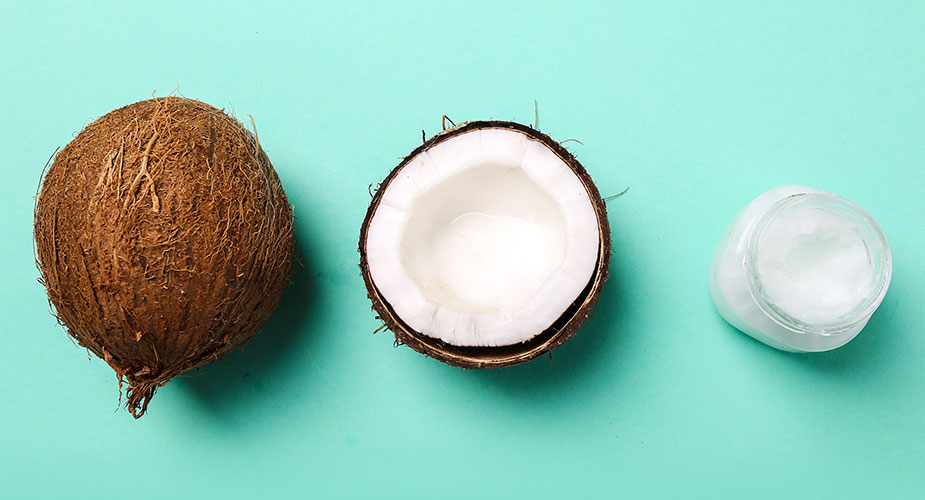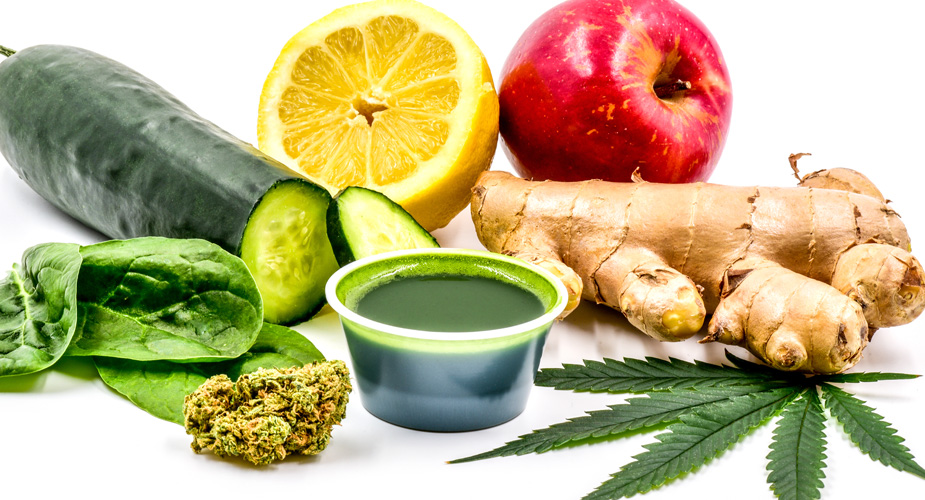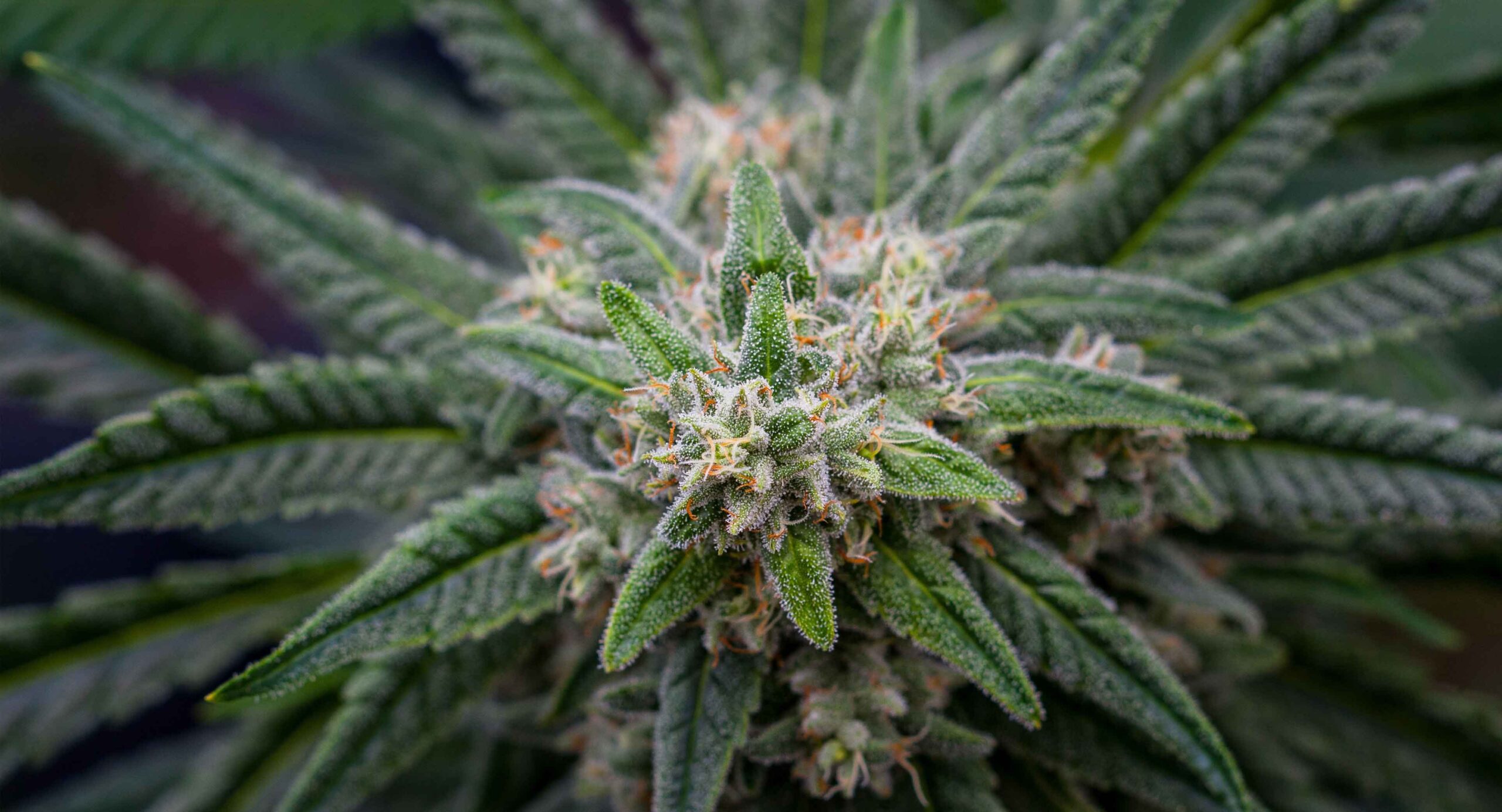Staying fit and healthy has made the “Top 10 New Year’s Resolutions for 2017″ in the “Number 6” position (Gill, 2016). For the cannabis medicinal patient and recreational marijuana enthusiasts alike, coconut oil can now be considered as a “superfood” (Gunnars, 2016). In fact, according to USDA (2016), coconut oil is one of the richest sources of saturated fat on record, with almost 90% of the fatty acids in it being saturated. However, new data indicates that saturated fats are almost entirely harmless as various studies with samplings from hundreds of thousands of research participants have revealed that there no direct connection to heart disease (The American Journal of Clinical Nutrition, 2010).
Cannabis and Coconut Oil: A New Combined Superfood
When coconut oil is infused with cannabis, sources claim the combination becomes a “superfood” product. The ketones found in coconut oil help to improve memory, while THC is considered to be beneficial at helping to prevent Alzheimer’s Disease (Cao, Li, Liu, Bai, Mayl, Lin, Sutherland, Nabar, & Cai, 2014). Saturated fat, which comprises 90% of the fat in coconut oil, is rich in good cholesterol, and can even help lower bad cholesterol. In conjunction with heart disease, which is the prominent cause of death for both men and women with the most common brand of heart condition being that of coronary heart disease (CHD), killing nearly 400,000 Americans per annum. Even though the U.S. Food and Drug Administration (FDA) has not approved Cannabis as a treatment for cancer or any other medical condition, the cannabinoids THC and CBD have been found to kill cancer cells, according to the National Cancer Institute (2016).
What makes coconut oil and cannabis such a potential health-centric pairing? Cannabinoids are fat soluble! The triglycerides in the oil help the the cannabinoids to attach, and the fat in the oil helps your body absorb the cannabinoids.
Cannabis Coconut Oil Recipe
To effectively produce our Cannabis Coconut Oil, all you need are cooking gadgets that you likely already own:
- Slow cooker (for the oil)
- Oven (to decarboxylate the flower)
- Blender or Grinder (to break down buds)
- Cheesecloth (to hold your flower, which is much easier than straining)
Place your ground flower in the oven on a cookie sheet, heat for 10 to 20 minutes at 200° F. Next, add it to the slow cooker with the coconut oil. Finally, slow cook the ingredients on low for 4 to 8 hours.
(Important: Be sure to maintain your oven heat no hotter than 220° F; for temperatures exceeding 220° F will cause the breakdown of essential cannabinoids.)
TAKEAWAY
This could quickly become one of the most frequently used items in your home. In addition to ingesting Cannabis Coconut Oil, it can be used in a litany of other ways. For instance, we have found it to be a fabulous moisturizer for hair and skin, good for soothing burns and rashes, and the combination is antiviral, antibacterial and a natural antifungal. Plus, in the bathroom, it can replace makeup remover and toothpaste, while in the kitchen, it can replace butter and cooking oils. Using it everyday could give your 2017 New Year and beyond the health boost you’ve been looking for.
References
Cao, C., Li, Y., Liu, H., Bai, G., Mayl, J., Lin, X., Sutherland, K., Nabar, N., & Cai, J. (2014). The potential therapeutic effects of THC on Alzheimer’s Disease. Journal of Alzheimer’s Disease, 42(3), 973-984. doi:10.3233/JAD-140093
Gill, J. (2016). Top 2016 New Year’s Resolutions vs. 2017: Which One will Be Top Next Year? Retrieved from http://www.wrdw.com/content/news/Top-2016-New-Years-resolutions-vs-2017-Which-one-will-be-top-next-year-408386155.html
Gunnars, K. (2016). 10 Impressive Health Benefits of Coconut Oil. Retrieved from https://authoritynutrition. com/top-10-evidence-based-health-benefits-of-coconut-oil
National Cancer Institute. (2016). Cannabis and Cannabinoids (PDQ®)–Health Professional Version. Retrieved from https://www.cancer.gov/about-cancer/treatment/cam/hp/cannabis-pdq
The American Journal of of Clinical Nutrition. (2010). Meta-Analysis of Prospective Cohort Studies Evaluating the Association of Saturated Fat with Cardiovascular Disease. Retrieved from http://
ajcn.nutrition.org/content/early/2010/01/13/ajcn.2009.27725.abstract
USDA. (2016). Vegetable Oil, Coconut Nutrition Facts & Calories. Retrieved from https://www.ars.usda. gov/northeast-area/beltsville-md/beltsville-human-nutrition-research-center/nutrient-data-laboratory/docs/sr21-home-page




